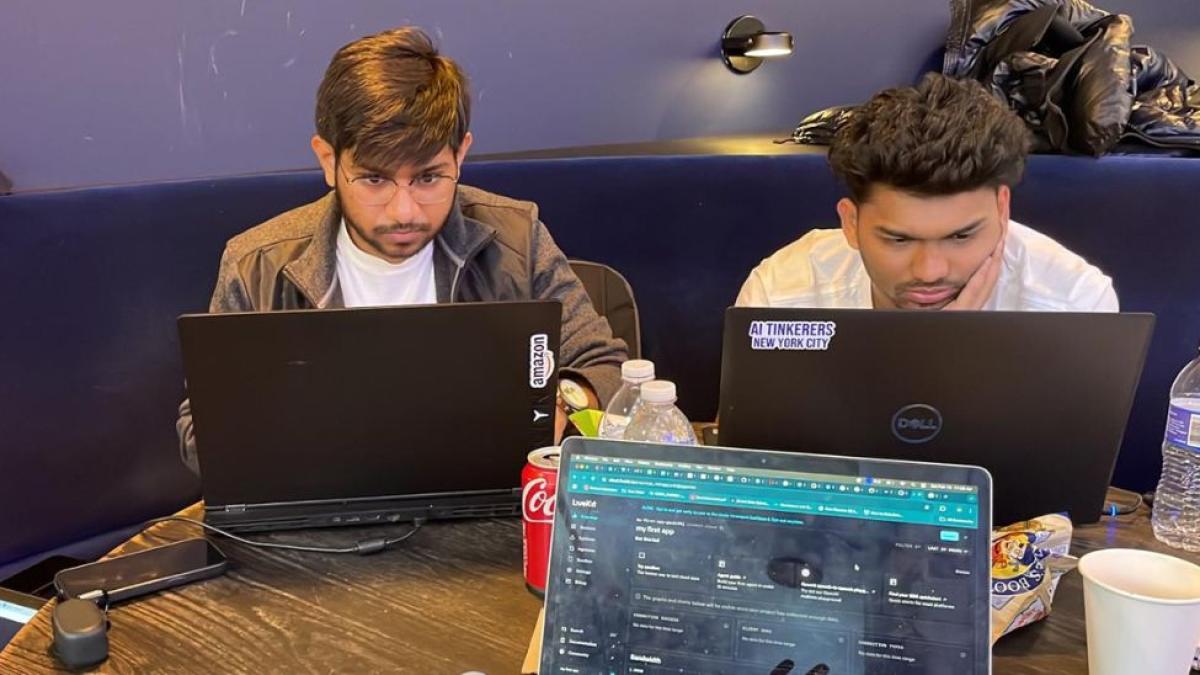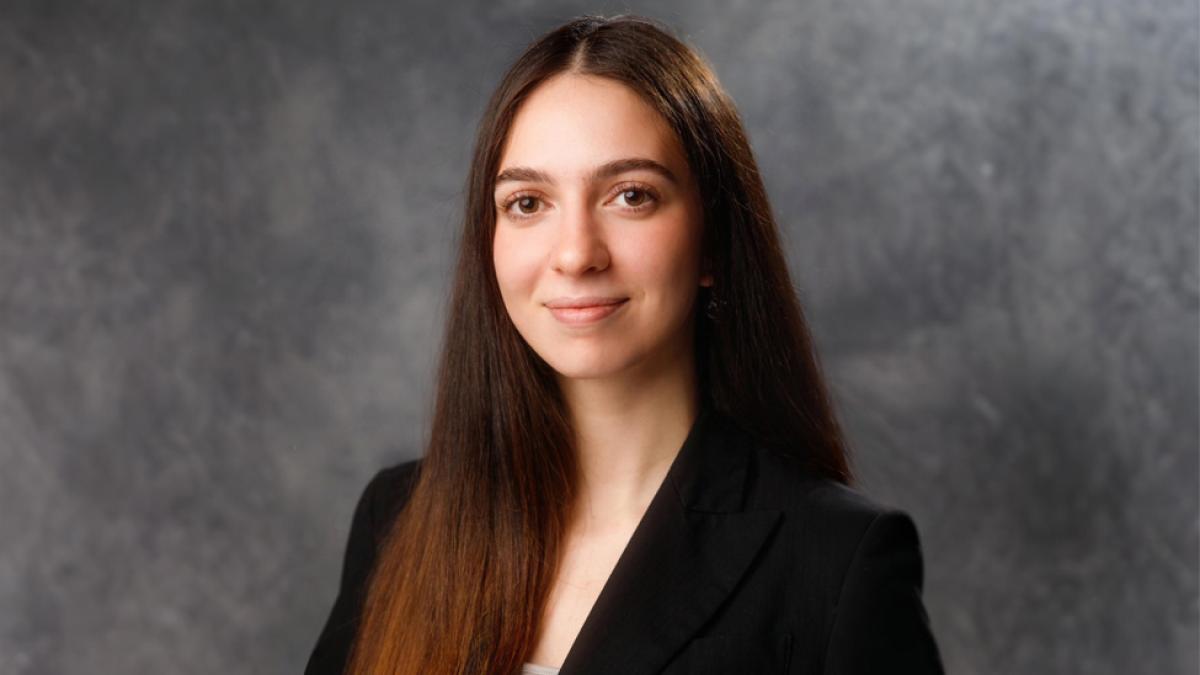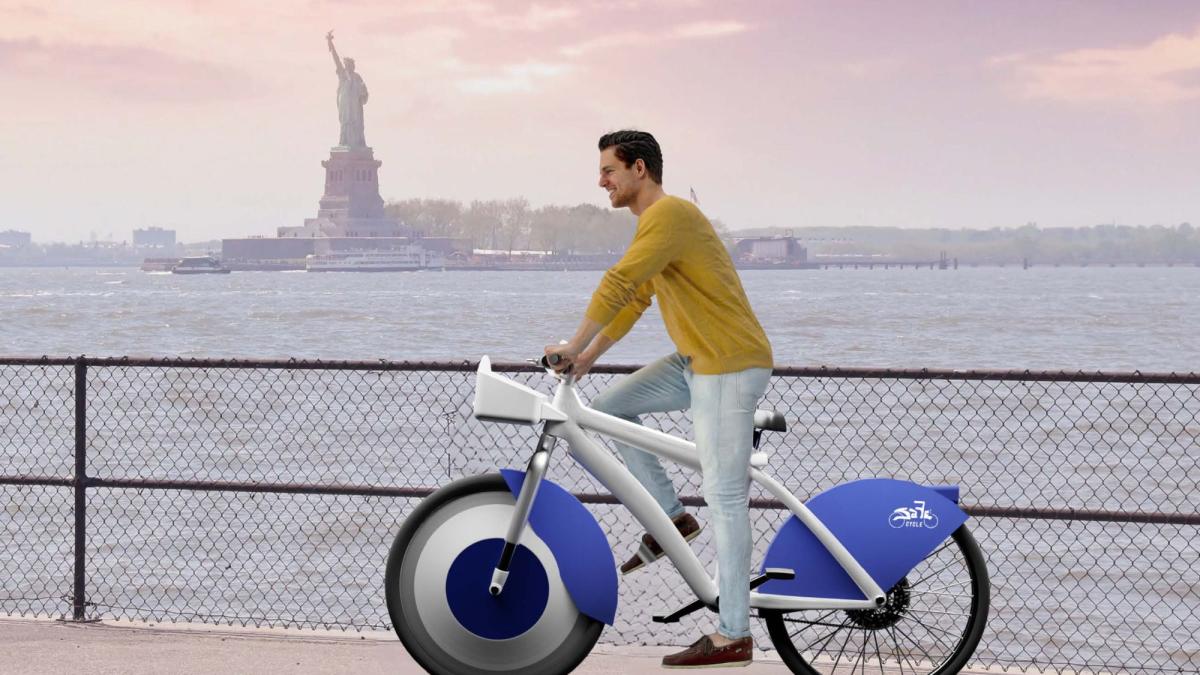
Seidenberg Hosts the Annual NYC Design Factory Project Gala
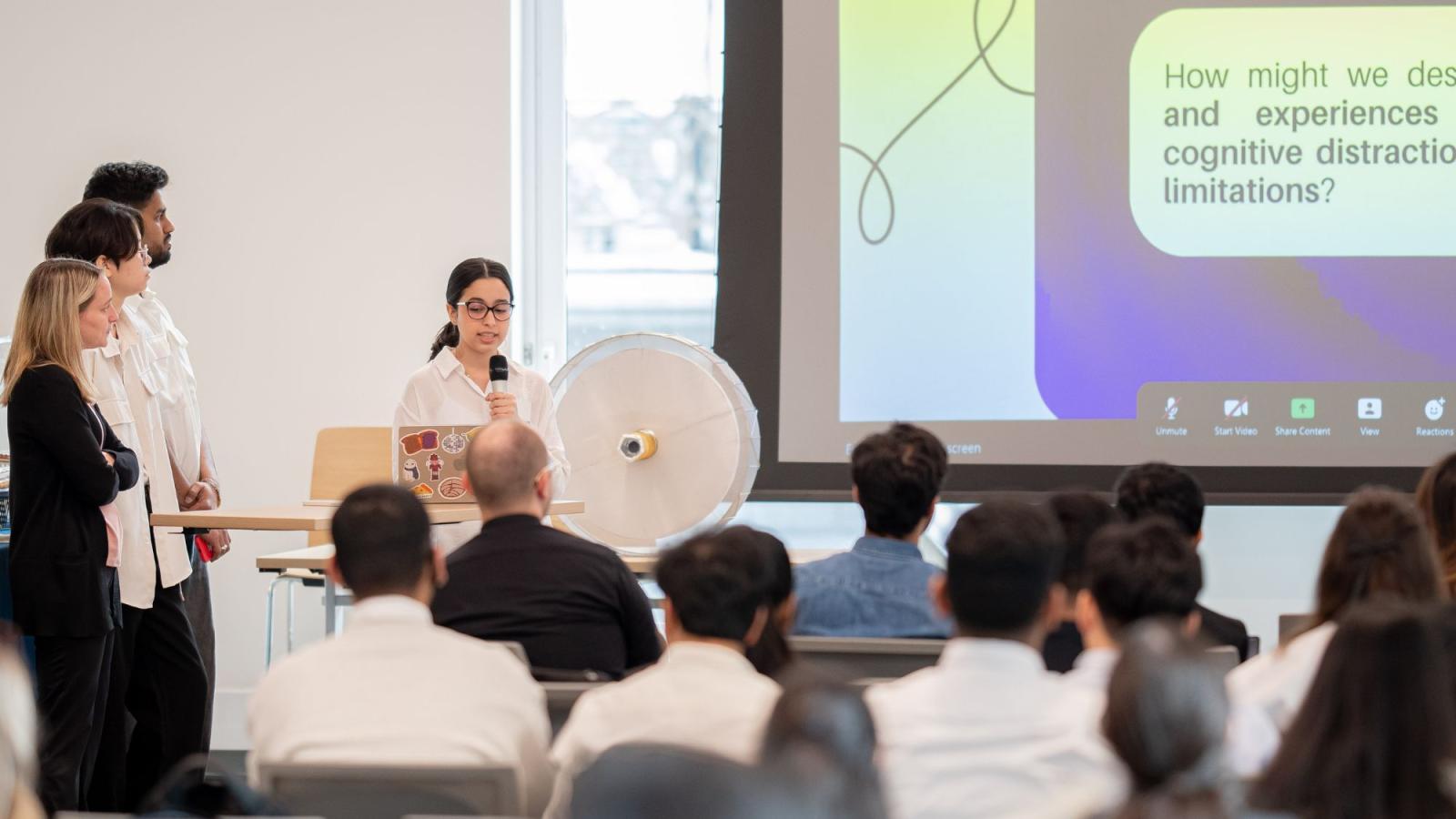
As the Spring 2024 semester was coming to an end at Pace University, the school’s NYC Design Factory, located at the Seidenberg School of Computer Science and Information Systems, hosted a gala event showcasing its student projects.
The NYC Design Factory serves as a collaborative hub where students, faculty, and industry professionals come together to address challenges in both industry and society through activities and courses. It is a member of the Design Factory Global Network, a global community of innovation hubs located in universities and research centers dedicated to fostering the next generation of innovators. The program is centered around a problem-solving approach that is technology-centered, design-inspired, and human-focused.
At the event, Andreea Cotoranu, the Director of the NYC Design Factory and Clinical Professor at Seidenberg, told the audience how the impressive projects that were presented had a crucial role in the students putting their learned knowledge into practice:
The student projects supported through the NYC Design Factory and the Design Factory Global Network offer unique opportunities for students to work on interesting industry and societal challenges. They also enable students to collaborate internationally with a diverse range of academic and industry stakeholders, preparing them with valuable skills for the future.
As for the gala itself, Professor Cotoranu added that it “showcased a small yet impressive range of products, services, and experiences created by Seidenberg students. As part of their coursework, students tackled both specific and complex challenges, demonstrating innovative solutions and practical applications of the design and technology tools they learned.”
Featured projects were not only presented by NYC Design Factory students, but also fellow students from Seidenberg’s Product Development, Prototyping and User Experience, and Software Engineering courses.
As part of the Independent Study (IS 600) course, mentored by Andreea Cotoranu and Seidenberg Adjunct Instructor Susanna Lammervo, there were three projects shown at the gala. Team NY Falcons presented Ford AutomAlte, a concept which focuses on enhancing safety and comfort with autonomous vehicles used as public transport, especially shuttles. Team Bubble-Tea addressed safety concerns for e-bike riders in busy urban environments with SafeCycle, and Team Ditto tackled mobility challenges faced by the elderly and those with disabilities, particularly in walking and driving, with their product GaitEase.

Projects from the Product Development (CS 365/665) course were mentored by Andreea Cotoranu, Susanna Lammervo, and Pace Film and Screen Studies Department Chair and Professor, Luke Cantarella. Team Griffin, aiming to develop versatile flight simulators for various industry applications and trade show demonstrations, developed the GoFly simulator. The solution developed by team The DesignSeers, Food for Thought, seeks to improve access to fresh and affordable produce in New York City and examines ways to empower residents to re-evaluate their relationship with food. Team Oculus addressed the environmental challenge posed by increasing space debris and satellite collisions by developing ORRUS, the Orbital Recovery Recycling and Utilization System.
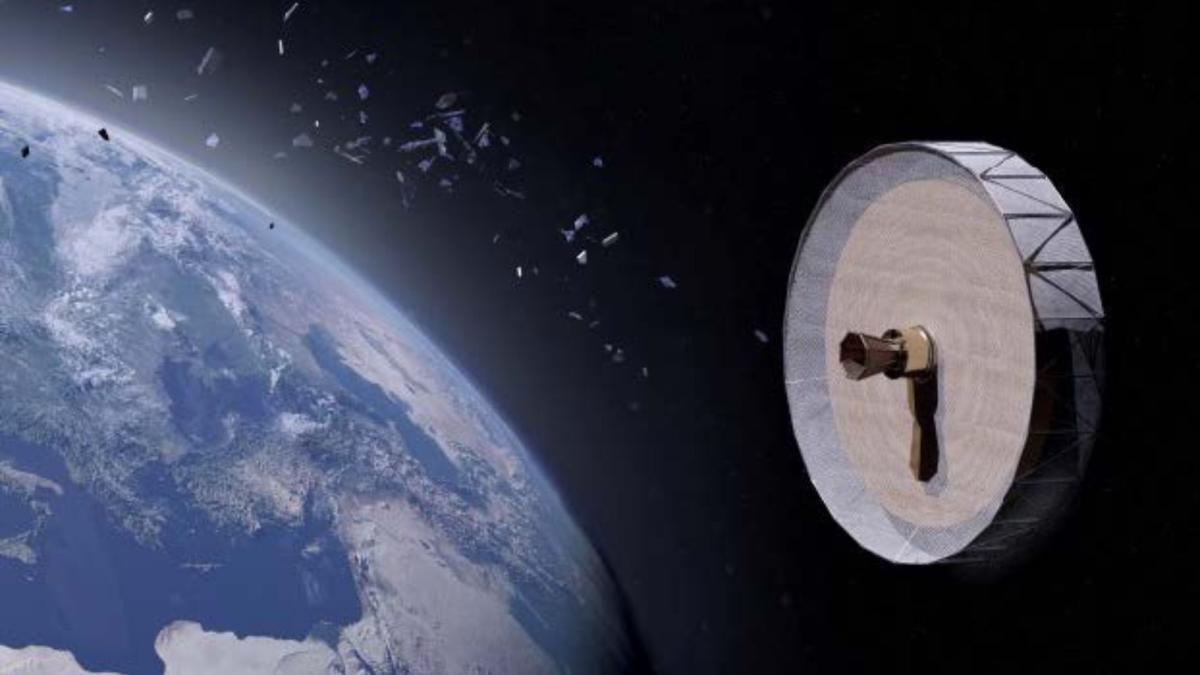
Students from the Software Engineering Capstone (CS 491) course were mentored by Seidenberg professor, associate dean, and co-director of the new Seidenberg AI Lab, Dr. Christelle Scharff. Team MoonFlo focused on providing comprehensive support for women’s well-being, by creating an all-encompassing menstrual wellness tracker app called MoonFlo.
Shape Tomorrow’s Skyline and the Simpsons Effect, teams from the Prototyping and User Experience (IS 630) course, were mentored by Seidenberg Clinical Assistant Professor, Jonathan Williams, D. Des. Both teams concentrated on developing digital museums that accommodate digitally native artifacts. Shape Tomorrow’s Skyline is an exhibit designed to empower users to unleash their creativity by designing buildings that can be integrated into the New York City skyline, while the Simpsons Effect showcases how "The Simpsons" remarkably predicted over 10 real-life events by accompanying snippets from the corresponding episodes with comparisons to the real-life occurrences.
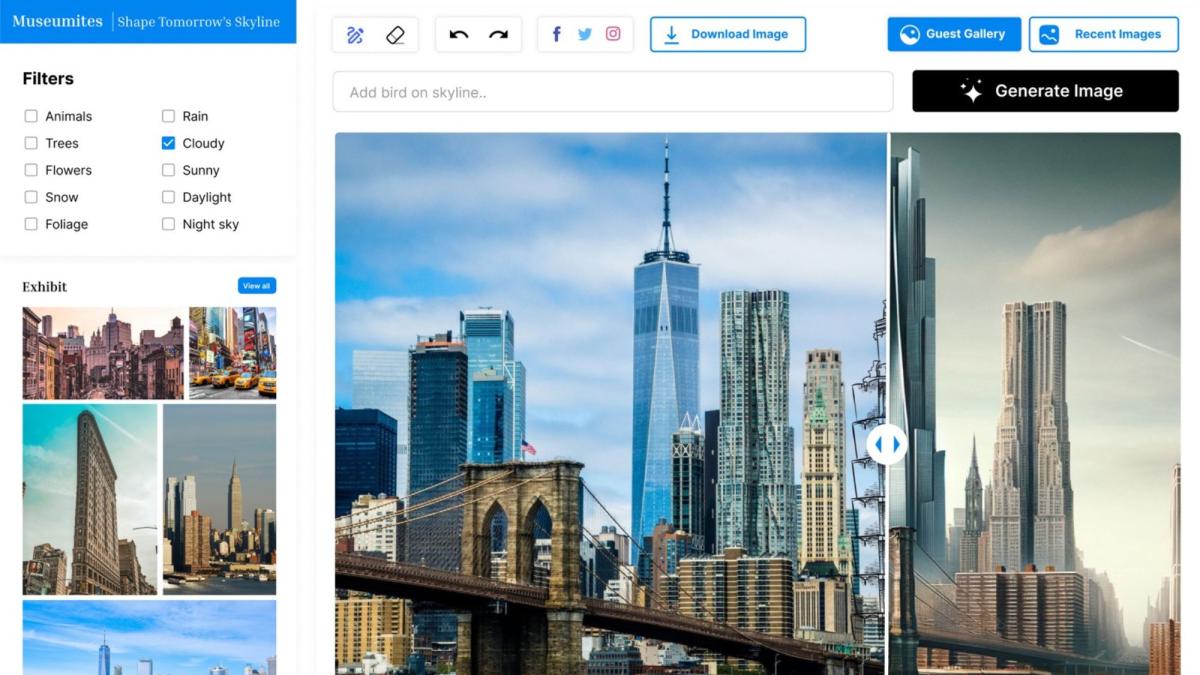
Jonathan Williams pointed out that these teams’ presentations were “the culmination of a semester full of site visits to museums, desk research, and developing a multitude of prototypes. Their work highlighted a true commitment to the practice of iterative prototyping.”
He also perfectly reflected the thoughts of the audience, as well as the professors who mentored all these innovative projects, when he said that “it was such a joy to watch my students present their work at the Project Gala."
Giving them the chance to share their work with the Pace community beyond the classroom not only builds awareness for their work, but affords them the opportunity to grow their professional communication skills as designers and technologists.

